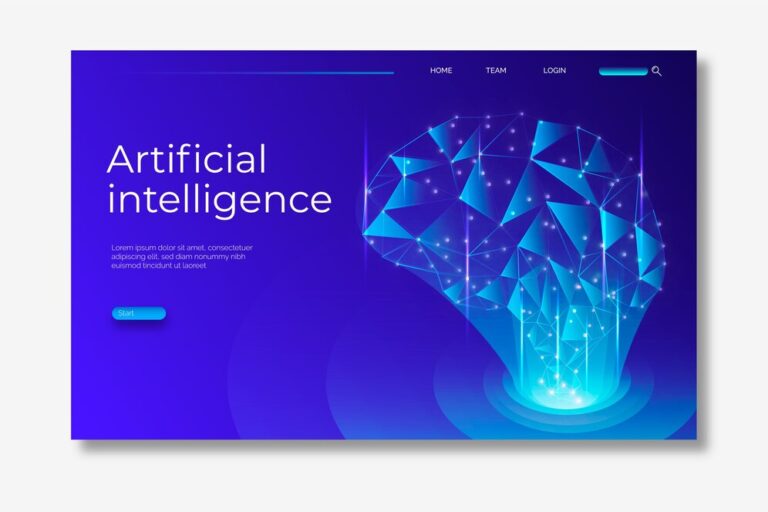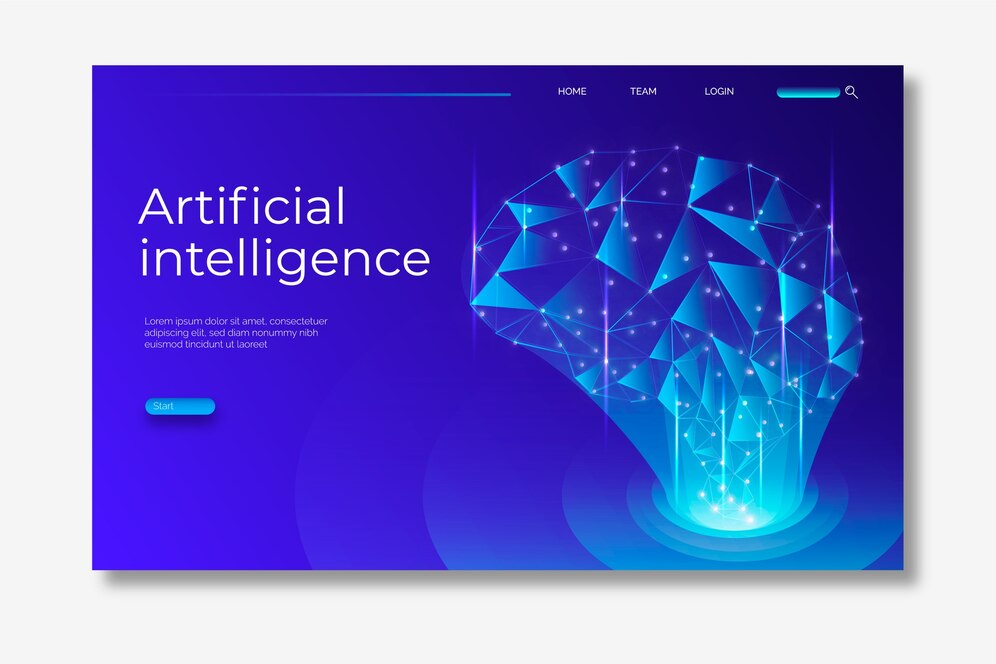Introduction
In today’s digital landscape, artificial intelligence (AI) has reshaped content marketing, evolving from a novel concept into a powerful tool for achieving both strategic and operational excellence. As content marketing has grown, so has the need to create more personalized, timely, and data-driven content. AI allows marketers to tackle these challenges with greater precision and efficiency, offering tools that automate mundane tasks, predict trends, and enhance engagement. For those with a wealth of industry experience, the integration of AI is more than a trend—it’s a revolution that changes how we connect with audiences, build brand loyalty, and drive measurable outcomes.
With decades of content marketing experience, it’s clear that the adoption of AI in content marketing marks a pivotal shift. This article examines AI’s role in transforming content marketing, unpacks key trends shaping 2024, and provides actionable strategies and best practices to leverage AI’s full potential.
The Role of Artificial Intelligence in Content Marketing
AI has become indispensable in content marketing due to its ability to analyze large datasets, automate repetitive tasks, and improve overall marketing efficiency. By examining audience data, AI tools can uncover patterns and preferences that help marketers create relevant, targeted content. For instance, machine learning algorithms can analyze browsing history, purchase behavior, and social media engagement to develop profiles of audience personas, helping content marketers tailor their messages with unprecedented accuracy.
But AI’s role isn’t limited to analytics. It also enhances creativity. AI-powered content generation tools like ChatGPT and Jasper assist in brainstorming ideas, drafting content, and optimizing for SEO. These tools have made content creation faster and more consistent, essential in a time when quality and volume are critical. However, while AI is a powerful tool, the key to successful content marketing is still strategic human oversight, making AI an enabler rather than a replacement for skilled marketers.
Key AI Trends Shaping Content Marketing in 2024
To remain competitive in 2024, it’s essential to understand and adapt to the latest AI-driven trends in content marketing.
AI-Powered Content Generation
AI-driven content generation tools are among the most exciting developments in content marketing. Tools like Jasper, Copy.ai, and even OpenAI’s ChatGPT allow marketers to generate high-quality content quickly, from blog posts to social media captions. These tools analyze the structure of high-performing content, recommend ideas, and can even mimic brand voice to maintain consistency. For example, Jasper helps content creators draft blog posts that adhere to specific style guidelines, while Copy.ai can generate engaging social media captions optimized for engagement.
Despite these benefits, the challenge lies in maintaining authenticity. AI-generated content can sometimes feel impersonal, and if overused, it risks alienating audiences. Marketers need to refine AI-generated content carefully, ensuring it aligns with the brand’s voice and maintains a human touch. With this approach, AI tools can be a valuable ally in producing content at scale while preserving quality.
Hyper-Personalization with AI
In today’s marketing environment, consumers expect highly personalized experiences. AI enables marketers to deliver these experiences by analyzing data to create segmented and personalized content. This approach extends to email marketing, website customization, and even in-app experiences, allowing brands to deliver the right message at the right time. AI-driven personalization tools like Dynamic Yield and Segment help brands implement personalized recommendations, increasing engagement and conversions.

Brands like Amazon and Netflix set the standard for hyper-personalization, analyzing user behavior to curate content recommendations. Now, smaller companies can leverage AI to achieve similar results on their digital platforms. For instance, a retail brand can use AI to send personalized emails based on browsing history, offering product recommendations that align with each customer’s preferences.
AI-Enhanced SEO Optimization
SEO remains fundamental to content marketing, and AI is enhancing its effectiveness. Tools like Clearscope, Surfer SEO, and MarketMuse use AI to analyze the top-ranking pages for specific keywords, identifying common themes, word counts, and related terms. This information helps marketers create content that not only meets search engine algorithms but also delivers value to readers. Additionally, AI-powered SEO tools can monitor changes in search engine algorithms in real time, allowing marketers to make proactive adjustments.
AI can also streamline SEO for voice search, an area of growing importance as more consumers use digital assistants like Alexa and Siri. By understanding conversational language, AI-powered tools can help optimize content to align with how people speak rather than type, improving visibility on voice-based platforms.
Predictive Analytics for Content Strategy
AI’s predictive capabilities are transforming how content strategies are developed. With tools like HubSpot and Google Analytics 4, marketers can use machine learning algorithms to predict future trends, understand content performance, and optimize strategies accordingly. Predictive analytics can reveal upcoming shifts in consumer behavior, helping marketers create content that anticipates needs and questions.
For example, if an AI tool identifies an increase in searches related to sustainable fashion, a brand specializing in eco-friendly clothing can plan content around that topic, attracting new audiences. Predictive analytics allows marketers to stay ahead of trends, making their content more relevant and impactful.

Best Practices for Integrating AI in Content Strategy
While AI offers powerful capabilities, effective integration requires thoughtful planning. Below are key best practices to maximize AI’s potential while preserving the strategic touch.
Balancing AI with Human Creativity
While AI excels in data-driven tasks, human creativity remains irreplaceable. AI can create content outlines, suggest headlines, or draft emails, but humans need to add emotional resonance and context. For example, while an AI tool might generate a catchy social media post, a human touch ensures that it aligns with the brand voice and reflects cultural nuances. Marketers can maximize AI’s efficiency by using it for initial drafts, then refining the content to ensure it meets high standards of authenticity and relevance.
Keyword Optimization Without Overloading
AI tools like Surfer SEO make it easy to analyze keyword density and placement, but overusing keywords can lead to awkward, robotic-sounding content. The best approach is to use AI to identify relevant keywords and sprinkle them naturally throughout the text, preserving readability. This balance ensures content is both SEO-friendly and engaging, providing value to readers while improving visibility.
Data Privacy and Ethical Standards
As AI personalization becomes more advanced, respecting user privacy is crucial. Content marketers should be transparent about how they collect and use data, complying with regulations like GDPR. Ethical AI usage also extends to content originality. Using tools like Copyscape ensures AI-generated content remains unique, avoiding duplication that can harm SEO and brand reputation.
Using AI for Content Ideation and Audience Engagement
AI is a powerful tool for content ideation, suggesting topics based on audience interest and seasonal trends. AI-driven platforms like BuzzSumo analyze trending topics and popular keywords, helping marketers brainstorm ideas that align with current interests. Once content is published, AI-powered engagement tools can enhance visibility by recommending optimal times to post, automating replies, and analyzing feedback, thus maintaining a consistent connection with the audience.
Challenges and Limitations of AI in Content Marketing
While AI brings many advantages, it also presents unique challenges.
Avoiding Plagiarism and Maintaining Originality
AI-generated content may unintentionally replicate existing material, which can harm SEO and trustworthiness. Marketers should use plagiarism detection tools like Grammarly or Copyscape to ensure content originality. By monitoring for duplication, brands can maintain a strong SEO presence and credibility with readers.
Navigating Personalization vs. Privacy
Though AI-driven personalization can boost engagement, over-personalization can feel invasive to some audiences. It’s essential to balance personalization with transparency, offering users clear choices about data collection and use. In doing so, brands can foster trust and improve customer loyalty.
Balancing Automation and Authenticity
Excessive automation risks making content feel impersonal. While AI can efficiently manage repetitive tasks, it’s critical to maintain a balance between automation and human insight. Successful brands use AI for routine tasks but rely on human creativity for storytelling and brand representation, ensuring that content remains engaging and authentic.
Future of AI in Content Marketing: A Vision for Responsible Innovation
As AI technology advances, its role in content marketing will continue to expand. Emerging technologies, such as AI for augmented and virtual reality (AR/VR), may redefine how marketers approach interactive content, providing immersive brand experiences. Natural language generation is also evolving, allowing AI to produce more nuanced, engaging content that captures complex brand messages.
Yet, the future of AI in content marketing hinges on responsible use. As marketers, our responsibility is to ensure that AI tools enhance, not replace, human creativity and integrity. By combining AI’s analytical power with human insight, content marketers can forge strong connections with audiences, achieving lasting brand impact.
Conclusion
Artificial intelligence has fundamentally transformed content marketing, offering unprecedented opportunities for efficiency, personalization, and insight. By understanding and adapting to AI’s capabilities, marketers can enhance their content strategies and strengthen audience relationships. Embracing AI’s potential with a thoughtful approach will be the key to content marketing success in 2024 and beyond, blending cutting-edge technology with the timeless values of creativity, authenticity, and trust.














